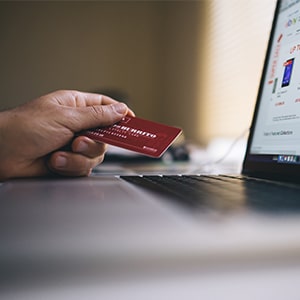Apart from malware and data breaches, identity theft is the most used method by cybercriminals to obtain data and funds from unsuspecting victims illegally. With this method, cybercriminals gain access to your financial accounts, assume your position in all your socially registered platforms – some even attend events and services in your identity.
Perhaps you’ve already fallen victim of identity theft in the past, and if you haven’t already, you wouldn’t want to have a taste of it. Below are practices that will help you keep your online data safe and sound, away from identity thieves.
 Soyez toujours attentifs aux sites d'hameçonnage en ligne
Soyez toujours attentifs aux sites d'hameçonnage en ligne
Phishing sites always appear to be legitimate, but most of them are looking to harvest your data or drop malware to your device. They ask you to input your personal information like username, password – some will even ask for your social security number, address, credit card number, insurance data as well as a driving license.
Il est important de savoir que la demande formulée peut sembler normale, comme dans le cas d'une demande d'assurance ou de l'ouverture d'un compte bancaire. Si vous avez des doutes sur un site, vérifiez la validité de son certificat en consultant les détails HTTPS. En outre, vous pouvez visiter leur page de contact et essayer d'obtenir la validité de leurs emplacements physiques.
Utilisez toujours un mot de passe unique pour chaque compte en ligne
Online thieves will always look out for your passwords to have access to your data. It’s advisable to use the standard password practices when coming up with a password for your account. They include using strong passwords that are unique to each account. Additionally, use good password managing tool to store your passcodes and passwords safely.
Éviter de donner trop d'informations personnelles
Giving out too much personal information on your social media account is a risky affair. Hackers and phishers will always look up for your online information whenever they make you their target. While social media is a convenient platform where you can interact with the rest of the world, be careful of third-party apps which always send links on both your timeline and direct messages (DMs). Most of these links will ask for your data once you open them, and you will end up compromising your identity.
 Gardez une trace de vos états financiers, y compris de vos cartes de crédit
Gardez une trace de vos états financiers, y compris de vos cartes de crédit
Pour lutter contre l'usurpation d'identité et éviter la fraude, il est essentiel de garder un œil sur vos informations financières. Il y a de fortes chances que quelqu'un possède déjà vos informations financières et envisage de les utiliser. Prenez l'habitude de demander vos relevés financiers afin de pouvoir les consulter à tout moment. En cas de transaction suspecte, principalement par le biais de votre carte de crédit, demandez des éclaircissements. S'il s'avère que vous avez été compromis, fermez immédiatement votre compte et demandez à en rouvrir un autre par la suite.
Toujours utiliser un VPN
In as much as you practice the above safety precautions, always use a VPN to help keep your online data more secure and private. A VPN does this by keeping you anonymous when surfing online. It achieves this by encrypting your data, thus making it hard for phishers and stalkers to get to you. Additionally, a strong VPN will hide your physical location by masking your IP address.
 Soyez toujours attentifs aux sites d'hameçonnage en ligne
Soyez toujours attentifs aux sites d'hameçonnage en ligne Gardez une trace de vos états financiers, y compris de vos cartes de crédit
Gardez une trace de vos états financiers, y compris de vos cartes de crédit

